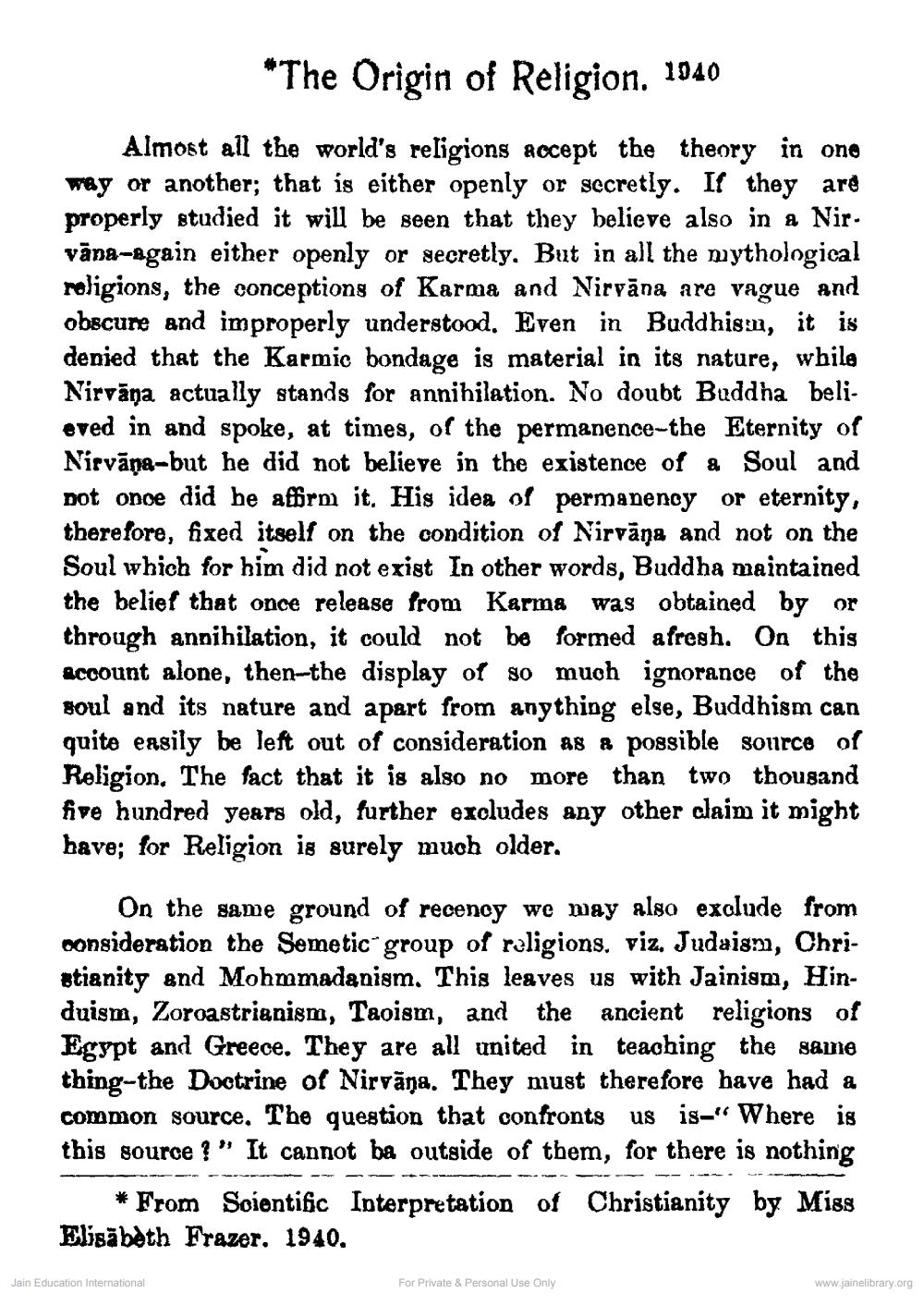________________
*The Origin of Religion. 1040
Almost all the world's religions accept the theory in one way or another; that is either openly or secretly. If they are properly studied it will be seen that they believe also in a Nir. vāna-again either openly or secretly. But in all the mythological religions, the conceptions of Karma and Nirvana are vague and obscure and improperly understood. Even in Buddhis!ı, it is denied that the Karmic bondage is material in its nature, wbila Nirvāṇa actually stands for annihilation. No doubt Buddha believed in and spoke, at times, of the permanence-the Eternity of Nirvāņa-but he did not believe in the existence of a Soul and pot once did he affirm it. His idea of permanenoy or eternity, therefore, fixed itself on the condition of Nirvāṇa and not on the Soul which for him did not exist In other words, Buddha maintained the belief that once release from Karma was obtained by or through annihilation, it could not be formed afresh. On this account alone, then-the display of so much ignorance of the soul and its nature and apart from anything else, Buddhism can quite easily be left out of consideration as a possible source of Religion. The fact that it is also no more than two thousand five hundred years old, further excludes any other claim it might have; for Religion is surely much older.
On the same ground of recency we may also exclude from consideration the Semetic group of religions. viz. Judaism, Christianity and Mohmmadanism. This leaves us with Jainism, Hinduism, Zoroastrianism, Taoism, and the ancient religions of Egypt and Greece. They are all united in teaching the same thing-the Doctrine of Nirvāņa. They must therefore have had a common source. The question that confronts us is-" Where is this source ? " It cannot ba outside of them, for there is nothing
* From Scientific Interpretation of Christianity by Miss Elisāboth Frazer. 1940,
Jain Education International
For Private & Personal Use Only
www.jainelibrary.org




